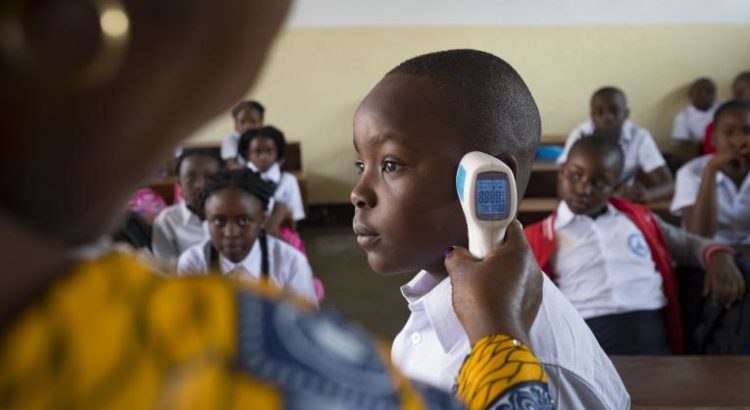Africa/ Congo/ 17.09.2019/ Source: www.unicef.org.
Schools have reopened for an estimated two million children living in communities affected by the Ebola outbreak in the eastern Democratic Republic of the Congo (DRC).
“Ebola has had a devastating and disruptive impact on families and communities here,” said UNICEF Representative in the DRC Edouard Beigbeder. “Ensuring that these children have access to safe, protective and welcoming schools is key to helping them regain normalcy and continue their learning.”
There are 6,509 primary and secondary schools in Ebola-affected areas of Ituri, North Kivu and South Kivu Provinces – 3,800 of them are in high-risk areas. Most have reopened for the new school term.
“At the start of the last academic year, the Ebola outbreak was still very new,” said Fati Bagna Seyni, UNICEF’s education lead in the Ebola response. “Many parents were scared to send their children to school fearing they could be infected in class. Teachers lacked the information and training to teach children about the disease or assist vulnerable children from Ebola-affected families. A lot has changed.”
Over the past year, UNICEF has worked closely with the Ministry of Education and other partners to map and deliver targeted assistance to schools, teachers, parents and students in affected areas.
This includes equipping schools with thermometers, hygiene supplies and handwashing stations and training school administrators and teachers on everything from prevention measures to basic case management if a student or teacher begins to show symptoms. Teaching materials were produced, including an instruction guide with child-friendly illustrations that helps teachers teach children about how the disease spreads, how to prevent it and good hygiene practices.
Teachers have also received psychosocial training, so they can identify and assist a child suffering from stigma or discrimination or a child grieving the loss of loved ones, whether from Ebola, other diseases or violent conflict, which also afflicts the region.
Among the students returning to class include hundreds of school-age Ebola survivors and children orphaned to Ebola.
In preparation for the new school term, UNICEF and partners have been assessing which schools need additional health and hygiene supplies, updating instruction guides and messaging based on feedback from teachers, printing new posters and informational materials and increasing outreach to parents and communities to encourage children to return to school.
“Informed teachers are incredibly valuable to the Ebola response because they are respected and listened to,” said Bagna Seyni. “Children learn how to prevent the spread of Ebola from teachers and bring those messages home to their parents and communities. Teachers and children can be great amplifiers and influencers and it’s essential we take advantage of that.”
To date, UNICEF and partners have:
- Trained over 32,400 teachers on how to teach children about Ebola prevention and how to make schools a protective environment for children
- Reached more than 928,000 students with vital information about Ebola
- Provided school support, including school fees, uniforms and supplies, to 432 child survivors and children orphaned to Ebola
- Equipped nearly 2,350 schools in high-risk areas with handwashing stations, thermometers and hygiene supplies
Source of the notice: https://www.unicef.org/press-releases/children-return-school-ebola-affected-regions-democratic-republic-congo







 Users Today : 49
Users Today : 49 Total Users : 35404527
Total Users : 35404527 Views Today : 55
Views Today : 55 Total views : 3334095
Total views : 3334095